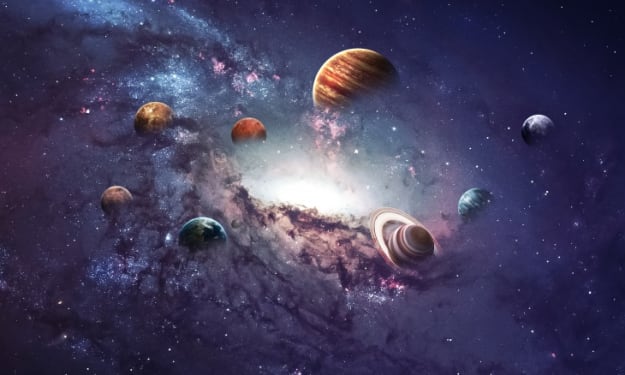
The Big Bang theory - it's a phrase that's been tossed around for decades, but what does it actually mean? Does it refer to an explosive sitcom, or something much more complex?. The Big Bang theory is a scientific explanation for the origins and evolution of the universe, and it's also the name of a popular TV show. But for the purposes of this blog post, we'll be focusing on the former - the scientific theory that has captivated astronomers, physicists, and curious minds alike.
So, what exactly is the Big Bang theory, and why is it such a big deal? In short, it's a theory that suggests the universe began as a single point, or singularity, around 13.8 billion years ago. This singularity then expanded rapidly in a massive explosion, known as the Big Bang, which created all the matter and energy that we see in the universe today. It's a complex and mind-boggling concept, but it's also one that's been supported by a wealth of scientific evidence and research.
But enough with the dry explanations - let's add a bit of humor to the mix, shall we? After all, the Big Bang theory is a subject that's fascinated and confounded people for decades, so why not inject a bit of levity into the discussion? In this blog post, we'll take a lighthearted yet informative look at the Big Bang theory and all that it entails. From the origins of the universe to the mysteries that still surround the Big Bang, we'll explore this fascinating concept in a way that's both engaging and educational. So sit back, relax, and get ready to blast off into the incredible story of the Big Bang!
The Big Bang theory has been the subject of countless books, TV shows, and movies, and for good reason - it's one of the most fascinating and mind-boggling concepts in all of science. But what exactly is the Big Bang theory, and how did it come to be? Let's take a closer look.
At its core, the Big Bang theory is a scientific explanation for the origins and evolution of the universe. It posits that around 13.8 billion years ago, the universe began as a single point, or singularity, that was incredibly dense and hot. This singularity then expanded rapidly in a massive explosion, known as the Big Bang, which created all the matter and energy that we see in the universe today.
But where did the idea for the Big Bang theory come from? Believe it or not, the concept of the Big Bang was first proposed by a Catholic priest named Georges Lemaître in the early 20th century. Lemaître was both a scientist and a theologian, and he was fascinated by the idea of the universe having a beginning. In 1927, he published a paper that suggested the universe had started as a single point, and that it had expanded from there. Lemaître's theory was met with skepticism at first, but as more evidence was uncovered, it became clear that he was onto something.
So, why is the Big Bang theory such a big deal? For one thing, it provides a way to explain the origins of the universe that's consistent with the laws of physics. It also allows us to make predictions about the universe's past and future, and to test those predictions through observations and experiments. But perhaps most importantly, the Big Bang theory helps us understand our place in the universe. It shows us that we're part of a vast, interconnected cosmos, and that the universe has been evolving and changing since its very beginning.
Of course, as with any scientific theory, there are still plenty of unanswered questions and mysteries surrounding the Big Bang. For example, what was the universe like in the first few seconds after the Big Bang? What caused the universe to expand in the first place? And what is the mysterious substance known as dark matter, which seems to make up the majority of the universe's mass? These are all questions that scientists are still working to answer.
Despite these mysteries, though, the Big Bang theory has come a long way since its humble beginnings. Today, it's one of the most widely accepted scientific theories of all time, and it continues to inspire new research and discoveries. So the next time you look up at the night sky, take a moment to appreciate the incredible story of the Big Bang and all that it has taught us about the universe. And who knows - maybe one day we'll even solve some of its greatest mysteries, too.
In conclusion, the Big Bang theory is a fascinating and important scientific concept that helps us understand the origins and evolution of the universe. It's come a long way since its initial proposal by Georges Lemaître, and it continues to inspire scientists and laypeople alike with its awe-inspiring implications. Whether you're a casual stargazer or a seasoned physicist, the Big Bang theory is something that can capture your imagination and help you appreciate the incredible complexity and beauty of the universe we call home. So keep looking up, and keep learning about the incredible story of the Big Bang!






Comments
Zayn is not accepting comments at the moment
Want to show your support? Send them a one-off tip.